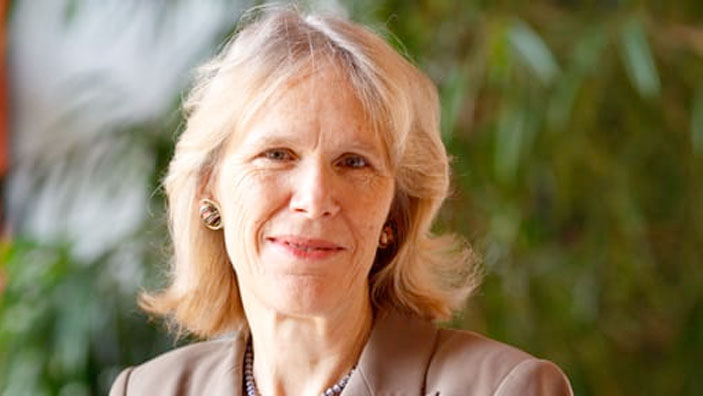KPMG Professor Emerita of Management Studies
Member of the Advisory Board, Cambridge Judge Business School
Fellow (Organisational Theory and Information Systems)
Fellow of Sidney Sussex College
BA (Keele University), MA (University of Cambridge), FIPH, FCGI, Hon DSc (Keele University), Hon DSc (University of London, Royal Holloway), CIM, DBE “in recognition of her contribution to higher education and management research”
My research interests are leadership, organisational change and governance.

Professional experience
Dame Sandra was Dean of Cambridge Judge Business School from 1995 to 2006, Master of Sidney Sussex College from 1999 to 2009 and one of the Deputy Vice Chancellors of the University from 2008 to 2012. She writes and consults on organisational behaviour, leadership and governance. She was invested as a Dame Commander of the British Empire as part of the UK national honours system in recognition of her contribution to higher education and management research and in 2006 she was inducted into the International Women’s Forum’s International Hall of Fame in recognition of her achievements in business education and leadership development including being an outstanding role model for women who aspire to lead in the commercial, educational and not-for-profit sectors.
Dame Sandra has wide experience in the commercial, public and charitable sectors, through research, consultancy, executive development and Board membership. Former positions include Chair of Riverside Mental Health NHS Trust and the executive committee of the Social Science Research Council in the USA, Vice Chair of Oxfam, a Non-Executive Director of TSB Bank, Barclays, JPMorgan Claverhouse Investment Trust and the Financial Services Authority, and a member of the Prime Minister’s Council on Science and Technology, the Windrush Lessons Learned Review Advisory Group, UK’s Senior Salaries Review Body, an Advisory Board for the Aga Khan University on building a business school to meet the needs of emerging economies, the Board of the American University of Sharjah and an expert witness on governance, leadership and management to the Post Office Horizon Inquiry. She currently Chairs the Advisory Board of the Cambridge Museum of Zoology and sits on the Advisory Board of Cambridge Judge Business School.
News and insights
Faculty news
Cambridge experts testify on Post Office IT scandal
Inquiry into the UK’s Post Office IT scandal received testimony and reports from Cambridge academics Professor Dame Sandra Dawson and Dr Katy Steward on issues such as accountability, board organisation and whistleblowing.
The reports will address issues of management, culture and governance relating to the faulty IT system in the UK’s Post Office scandal.
A discussion panel at Cambridge Judge Business School explores how to overcome barriers to more successful EDI (equality, diversity, inclusion) strategies.




